David E. Kelley Finds ‘Hope In The Water’ In His First Documentary Project, Pairing Him With Shailene Woodley, Martha Stewart & More
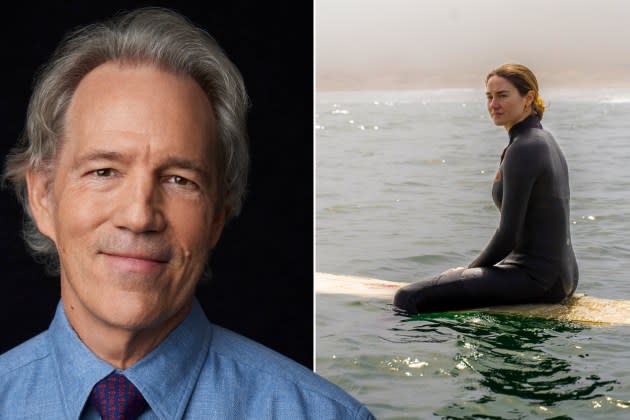
As a screenwriter, David E. Kelley is used to injecting social commentary into his material — not unlike the way the ancient Greeks entered the city of Troy. But when the creator of shows like The Practice, Big Little Lies and Ally McBeal made his foray into documentary filmmaking – with the ocean sustainability-themed Hope in the Water — the Trojan Horse method of educating was no longer applicable. “If you would leave me to my devices, I probably would’ve had a floating dead body, to talk about the biosecurity risk of people being beheaded in our oceans, but it was not going to be this kind of series,” jokes the prolific producer. “I didn’t proffer that idea. They didn’t ask for it – maybe because they were worried I might suggest something like that.”
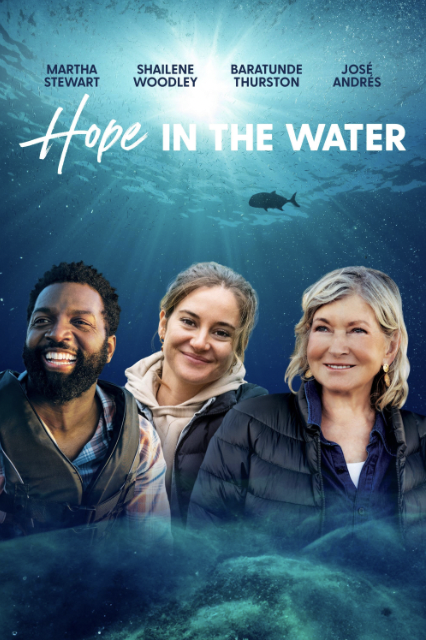
Hope in the Water, a three-part series from PBS, takes a far less salacious approach to the problems we face in terms of depleting our planet’s resources; instead, it connects viewers with fishers, aqua farmers and scientists attempting to sustainably harvest the oceans for a growing global population. Can we save the ocean while still relying on it to feed us? Yes, according to the experts featured in Hope in the Water.
More from Deadline
Episode 1 premiered Wednesday night; episode 2 is set for Wednesday, June 26, with the final episode premiering Wednesday, July 3.
In his first non-scripted endeavor, Kelley served as executive advisor for the series produced by Emmy- and James Beard-winning chef Andrew Zimmern and his production company, Intuitive Content. Zimmern and Patrick Weiland are fellow executive producers.
“I was happy to chip in where I could, maybe throw in some two cents on storytelling ideas,” says Kelley. “I am a big supporter of the [documentary] space and educating the public that aquaculture is a lane that we can all drive as a society to benefit the planet. Anything and everything I could do to bring attention to the project, I was game.”
Deadline spoke to Kelley about taking a solutions-based approach to a series about a global crisis, involving celebrity environmental enthusiasts Martha Stewart, chef-humanitarian José Andrés, writer-comedian Baratunde Thurston and Big Little Lies collaborator Shailene Woodley and how to best engage an audience by entertaining rather than alarming.
DEADLINE: Had you been wanting to make a foray into documentary filmmaking?
I’m not opposed to it. It’s not my skillset, but I love the genre and I’m also a big fan of the oceans, the rivers, and the world of aquaculture. This felt like a natural opportunity for me to dip my toes in those respective waters, if you’ll pardon the pun.

DEADLINE: You’ve been able to tackle topical subjects through scripted television. Why was this the right avenue to explore this particular issue?
I would love to get into the space on a scripted thing, too. The tough thing in any project, the burden that you have, is entertaining your viewers. There’s so much stuff on the airways now that if you don’t arrest the attention of your constituency quickly and hold them tight, you’re going to lose them. It’s true in the scripted world, it’s true in the documentary world. There’s a lot of fantastic documentaries and you can’t come in with just a message because it’ll feel like you’re asking the audience to eat its vegetables. It should be fun, entertaining, and if so, the viewers don’t have to pick up a pen and take notes to get the message. It just resonates with them because they’re interested in the storytelling.
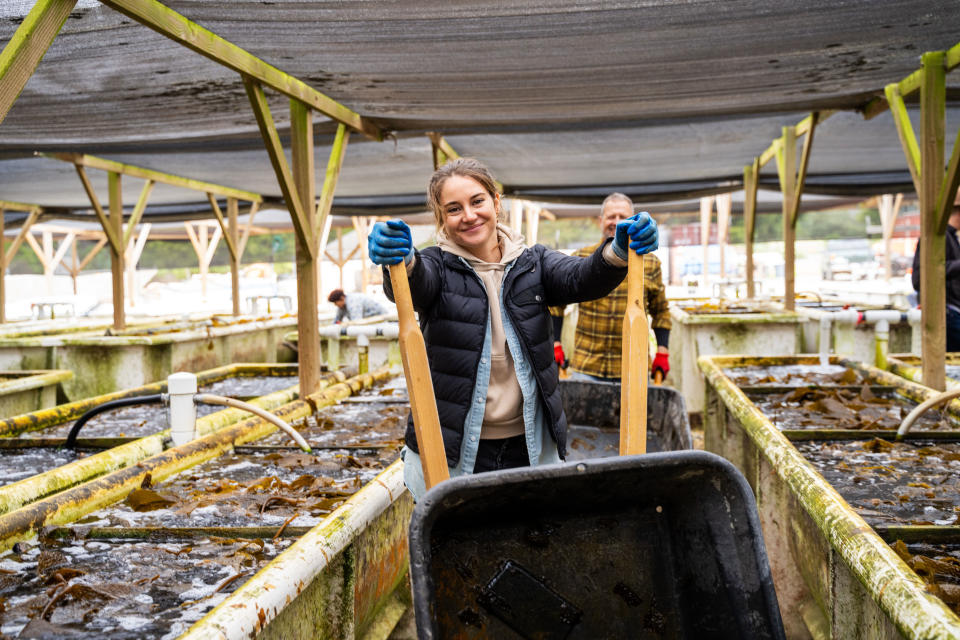
In this case, the protagonist in the individual episodes — Baratunde being one, and Shailene doing the narration — hopefully they’re going to take you into those worlds. You’re going to learn about zombie urchins and seaweed farming, not because you’re necessarily inclined to want to learn about those things, but you’re going to be fascinated with those people and their stories. And if the people’s stories resonate in a way that make you pay more attention to aquaculture after, then we’ve succeeded.
DEADLINE: You mentioned that you were brought in for storytelling purposes. How do you feel your experience in scripted entertainment has helped in terms of this project?
I’m not sure it has. You’d have to talk to [director Brian Peter Falk] or Andrew to see if I was worth anything to them. Andrew’s been in the space a long time, trying to educate the public with a lot of his food shows. His compass is pretty fine-tuned on that. And we know that it’s not about preaching to a choir here, because the people that are already inclined to eat in a way that benefits the planet or their own health are already doing so. The challenge is, how do you attract some of the people that aren’t already paying attention to that kind of subject matter or the idea that you can make food choices in a way that benefit the planet and their own bodies?
I used the word vegetable before, but if we’re going to stick with that, how do you serve up that vegetable and make it taste good? When I put something on at the end of the day – that’s when most of us watch television and we tend to be tired – you want to not lose sight of the fact that you have a burden to entertain. If you allow for people to tune out, they will. Especially this week, where you’ve got the Stanley Cup finals on. There’s good stuff out there.
DEADLINE: When you’ve done a certain thing for a very long time, you get very good at predicting the problems and it’s maybe not so exciting anymore. Were there things that you welcomed learning?
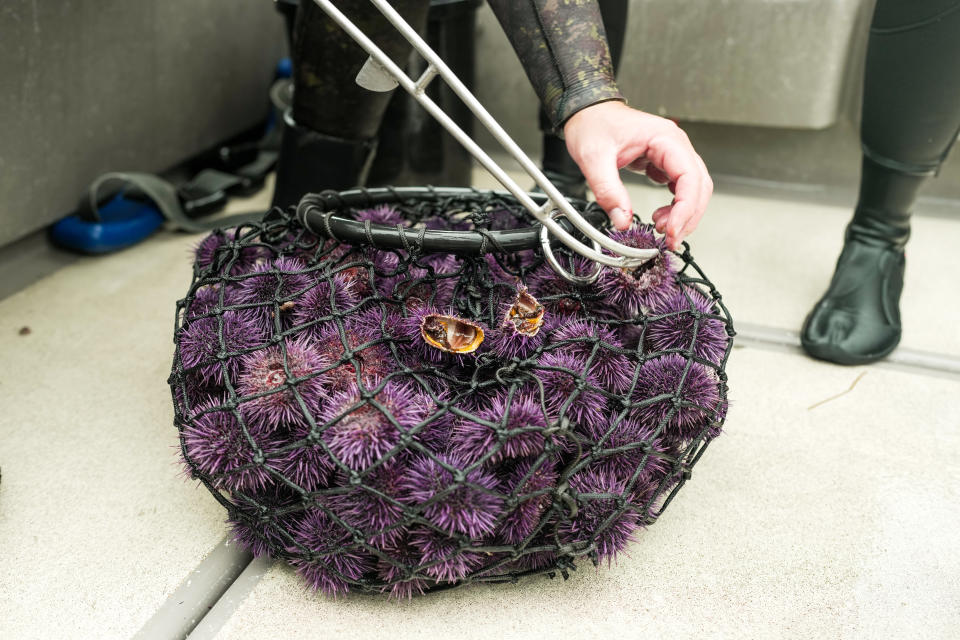
The documentary rule is different right from the get-go, because you go out and collect the footage and then the film tells you where the story wants to live. The way I’ve been used to doing business, the blueprint is the script. You’ve got your story and then you go out and execute your filmmaking around that blueprint. It’s the opposite here. You have a sense of what the center of the belly of the story is here, but now you go out with the footage and you see where it lives and breathes, and then you have to be open to that when you look at it in the cutting room. You see, “Okay, we thought we were going to zig in this direction, but the story really wants to zag and be about this person.” You want to listen to the film and be collaborative with that product as well as the subjects who were the center points of your filmmaking.
DEADLINE: Was it fun for you to be a little off keel?
Yeah, it was. It would’ve been more fun if I could have gotten to the filming, which I hope to the next go around. We joke that Shailene had all the fun. She got to go and jump in the water. I would like to do that one day, but for this time, because I had the day job going on at the same time, I was resigned to having to look at stuff on my computer.
DEADLINE: I assume Shailene came to this project because of you.
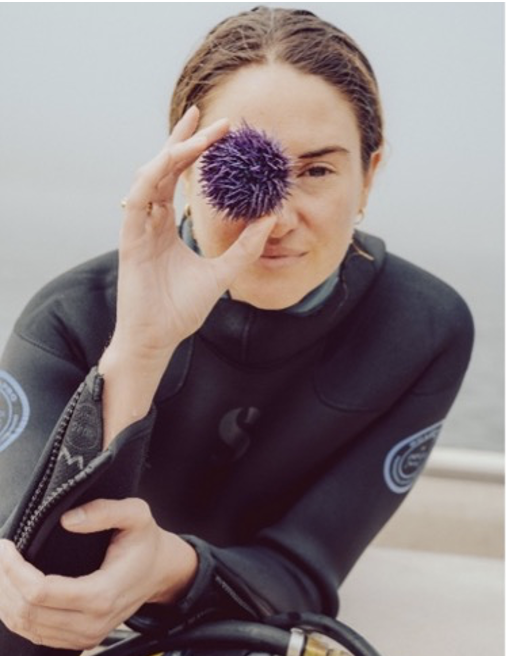
Because we knew each other, I knew that she was interested in the space and that she’s very conservation minded. When we were thinking of a narrator or someone to be a spokesperson for the project, she came to our mind first because I knew she already lived, breathed, and was genuine in that space. We weren’t just going out and getting a voice to say the words. We were looking for someone who inhabited the mindset and the goals that underlay the project itself. So she was a natural. We wanted her to jump in, and if you saw the film, she literally jumps in.
DEADLINE: You also have Martha Stewart, José Andrés, and Baratunde Thurston participating in the series. What do names like that add to the project?
You’re looking to get traction wherever you can. This is a passion piece for everyone involved because the Earth needs our help and there’s such doom and gloom around the subject matter of climate change. You’re asking people to tune into a show that involves that kind of message. There’s a little bit of, “I had a long day, just entertain me.” So anytime you can get someone to help bring people to the trough, that’s helpful. And again, we have to be mindful to make the product itself entertaining enough so when they do come, they’ll stay.
DEADLINE: What were the stories that touched you the most?
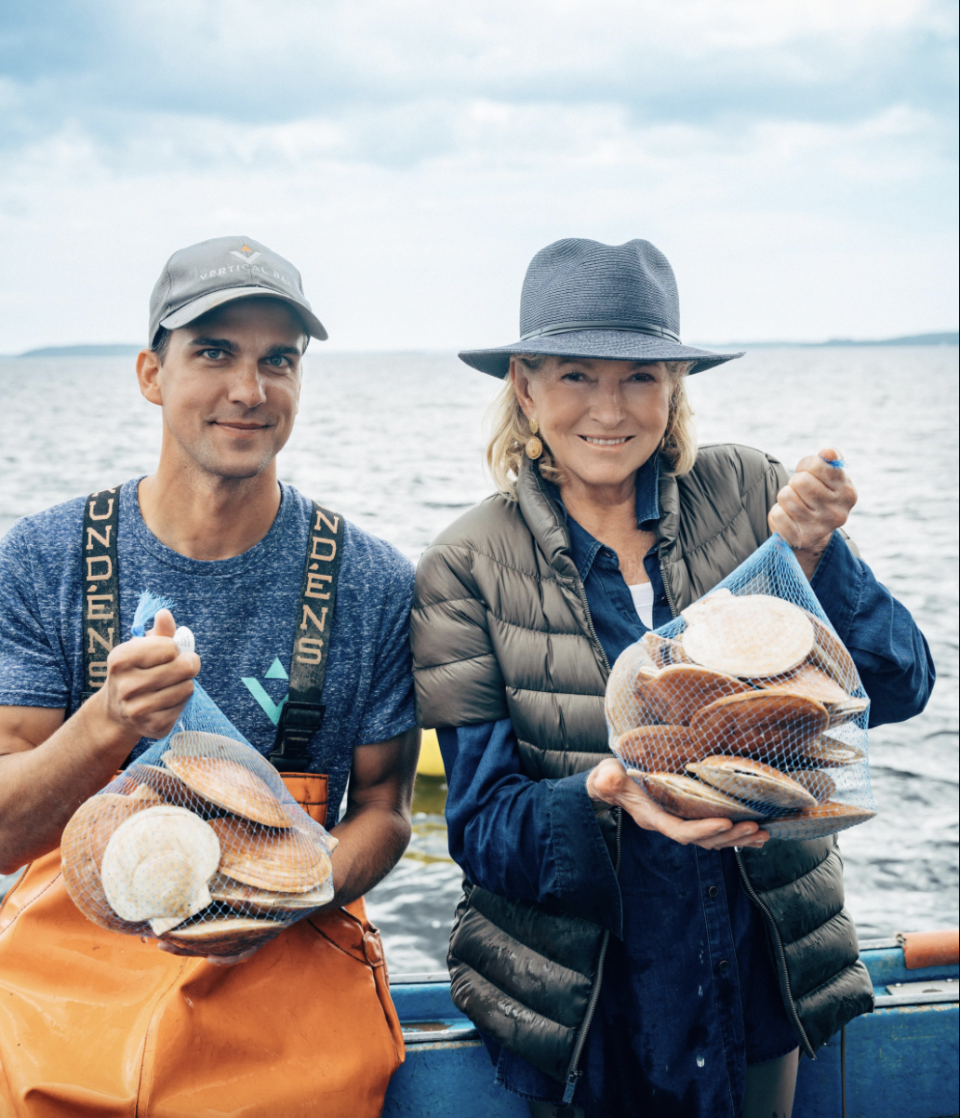
All these stories I like, but I think I connect most to farmers and fishermen. I’m from Maine. I was born on a farm, and I always had a sense that there was a real connection between farmers and the earth. They weren’t just looking to make a living. There was a connection between getting their hands in the soil and having a relationship with the planet in their way. I was also struck by the fishermen. They are out harvesting fish and one could make the argument that they’re taking from the ocean more than they’re giving, but the more time I’ve spent with fishermen there, it’s in their blood. Whether it be a lobsterman in Maine or a salmon farmer in Alaska or British Columbia, the fishermen, they feel like stewards of the land. Yes, they’re making a living off it as well, but that stewardship and that connection always felt genuine to me. If we could occasion the audience to have a connection with the ocean or with the earth by virtue of telling these stories through these farmers and fishermen, then we would’ve done our jobs.
DEADLINE: Your series is very solutions-based. How was the decision made to focus on actual ways to do better rather than the doom and gloom?
That was the key from the beginning and that’s why “hope” is in the title, because we were endeavoring to give people a sense of optimism. It’s not “game over” with respect to the climate. There still could be a happy ending and it can be a happy ending with little changes made by a lot of people. It’s so overwhelming when you think about the earth heating up and sea levels rising. It’s easy for an individual or an audience member going, “It’s too overwhelming. I can’t deal with it.” And if we can break it down and say, “You don’t have to solve the Earth’s problems, but if everybody maybe makes a little change in the aggregate, it will make a big difference.”
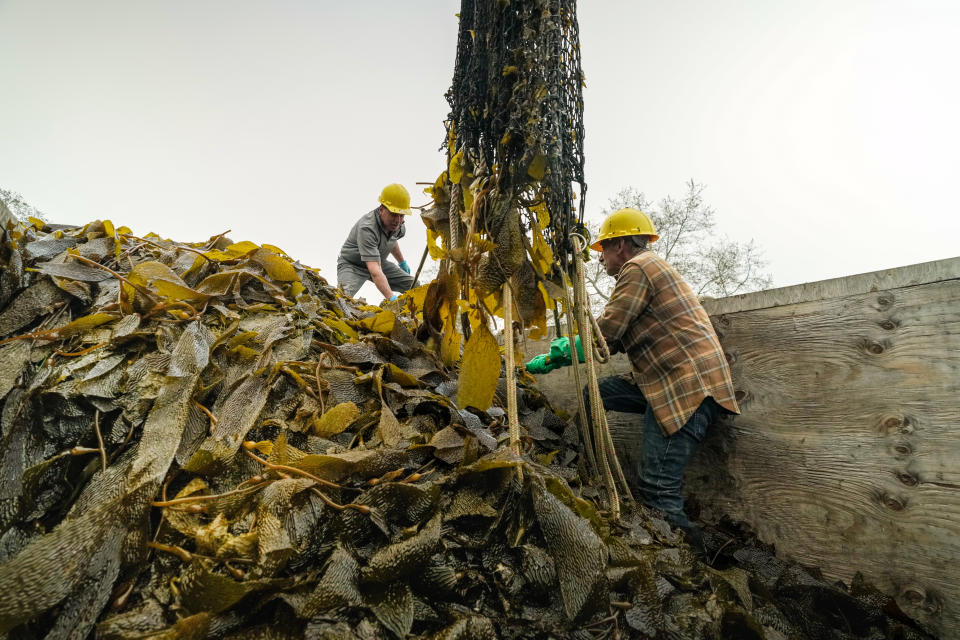
One of those big little changes can just be with food choices and diet selections. I love hamburgers and I won’t give them up forever, but I can eat less of them. And there’s such diversity in the ocean, and rather than eat a particular species to extinction, we can spread it out because there are a lot of alternatives and opportunities for different diverse menu items. And if we can just heighten people’s awareness, then that’s a good thing. But again, it’s got to be an enjoyable piece of film to watch. So if you’re only about escapism at the end of the day, then maybe we can offer that as well. Take a trip to the ocean, go be with a lobsterman or a seaweed farmer. If we can entertain and people can be inspired at the end of the hour, that’s great.
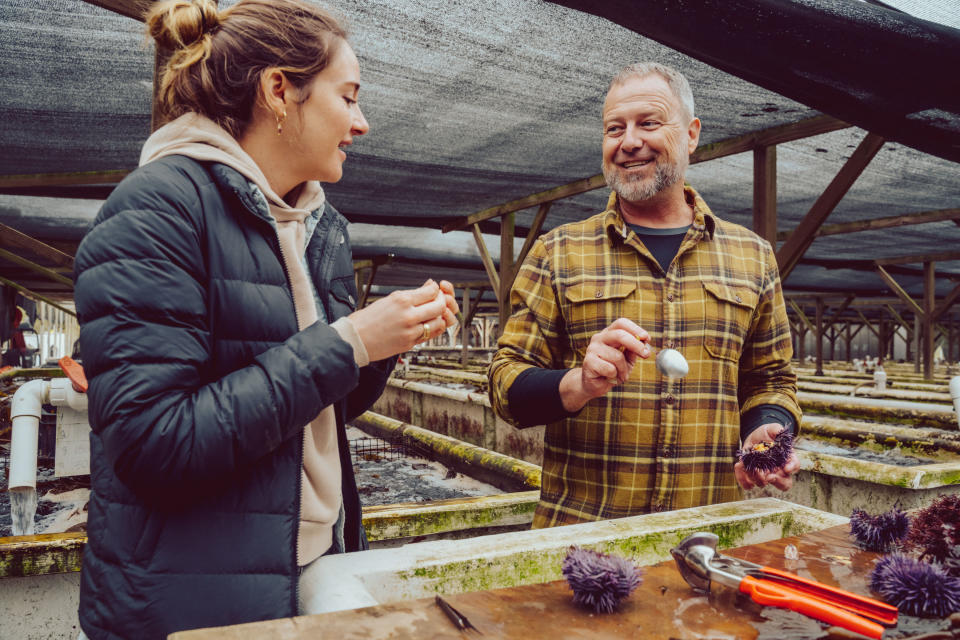
DEADLINE: How important was it to focus on the crisis itself, in terms of context?
We’re looking to err more on the positive than the negative. I think there’s an appreciation of the doom and gloom, and I think we’re probably more about taking the edge off of that and to show that there’s an opportunity to mitigate it. Most things that you read about how to make things better, the first five chapters are how terrible things are. It’s awful, awful, awful, awful, awful, and now we’re going to show you how to make it better. We definitely are assuming that the audience has a sense that the Earth needs our help and the oceans need our help. So we felt like we don’t have to maybe beat that drum so hard because it gets beaten a lot.
DEADLINE: What’s next for you?
We’re in development on a few projects for the scripted world. I have been intrigued and enjoyed the documentary, so who knows, there may be another opportunity to jump into that space. But for now, the day job is still the made up stories in the scripted world.
DEADLINE: Any Big Little Lies news you’d like to share with us, regarding a third season?
No, not yet. Everyone would love to do it. There’s a lot of schedules that have to coincide, so obstacles, but it’s a pretty tight and devoted team and everyone loved the project. So my mantra on that is never say never.
Best of Deadline
Sign up for Deadline's Newsletter. For the latest news, follow us on Facebook, Twitter, and Instagram.